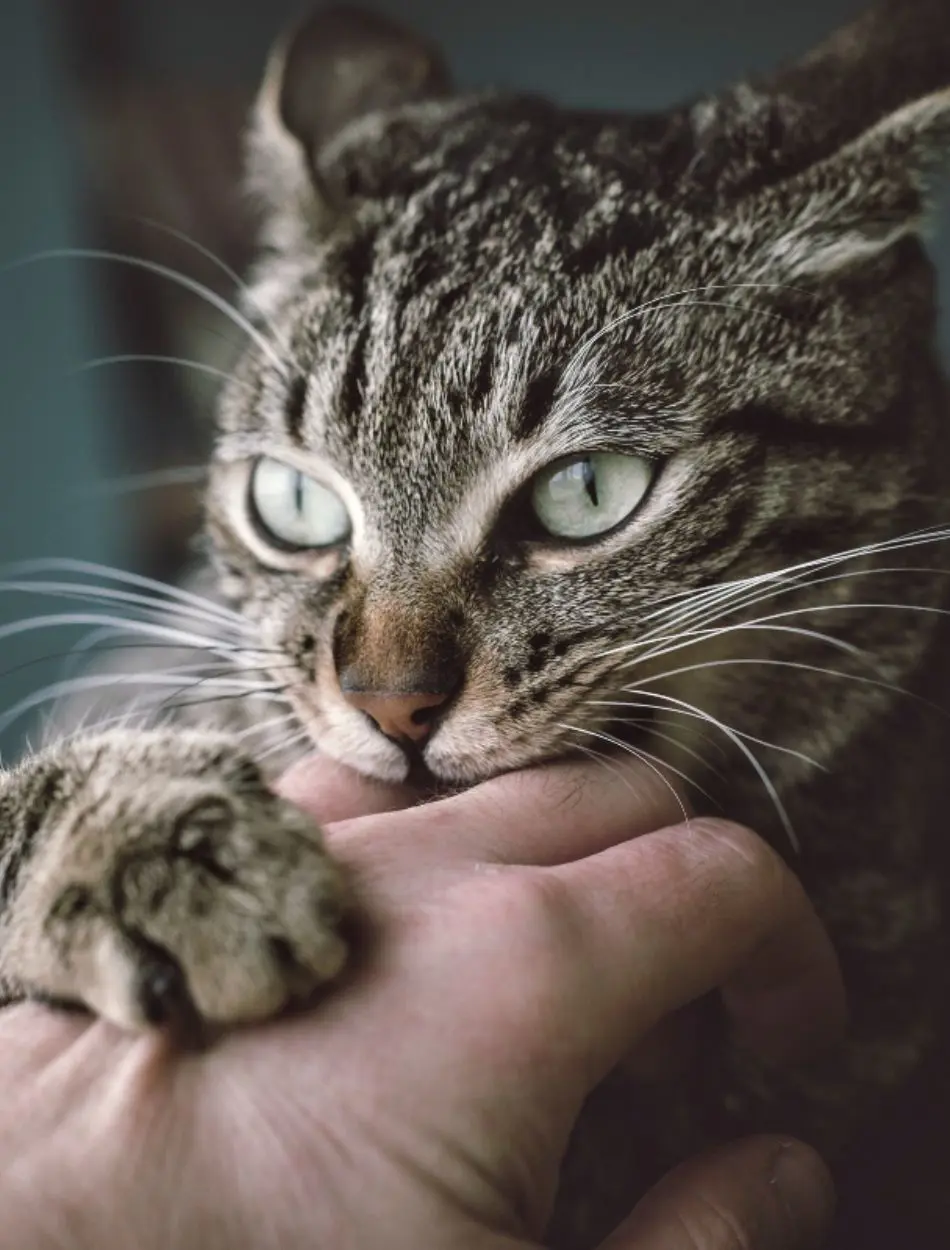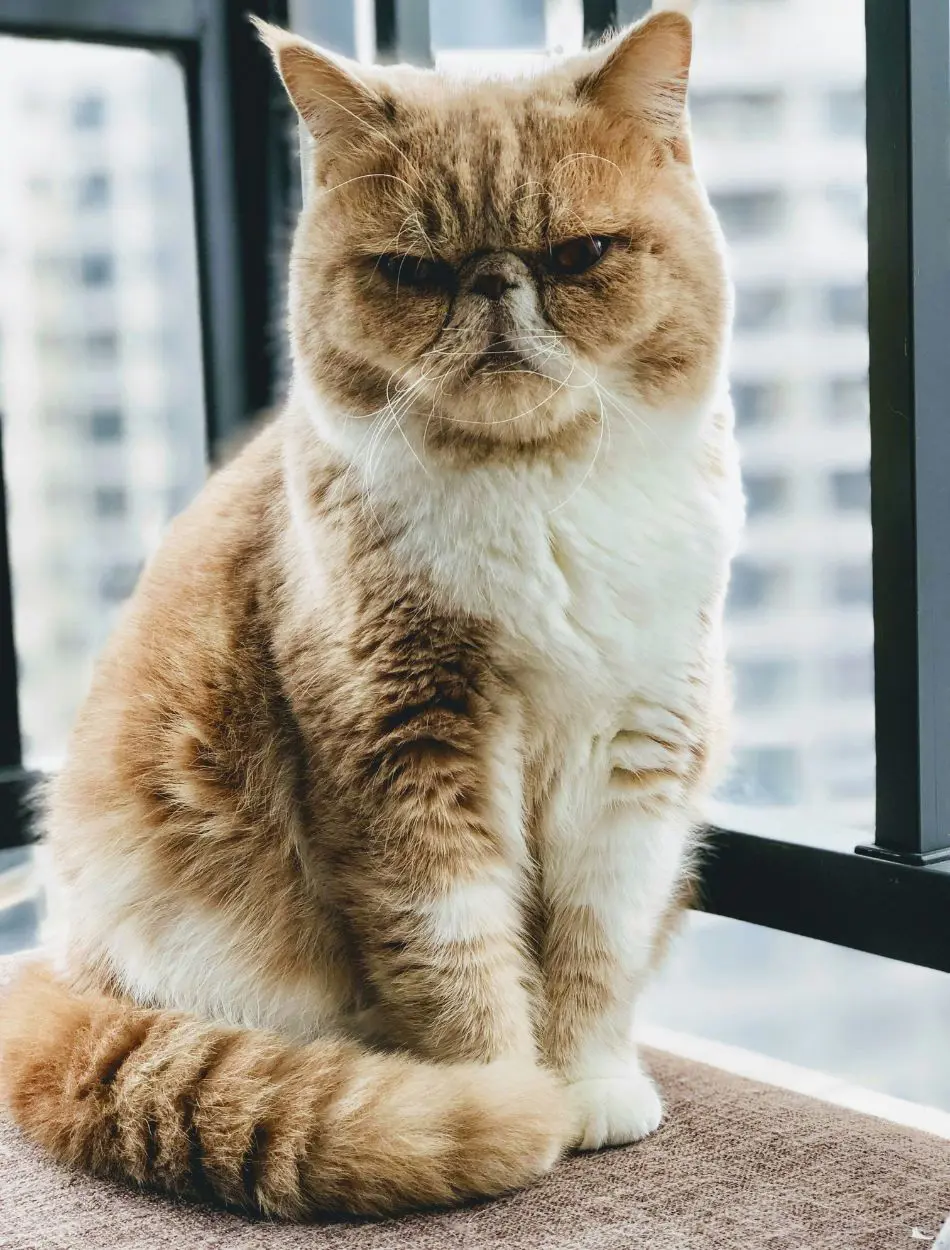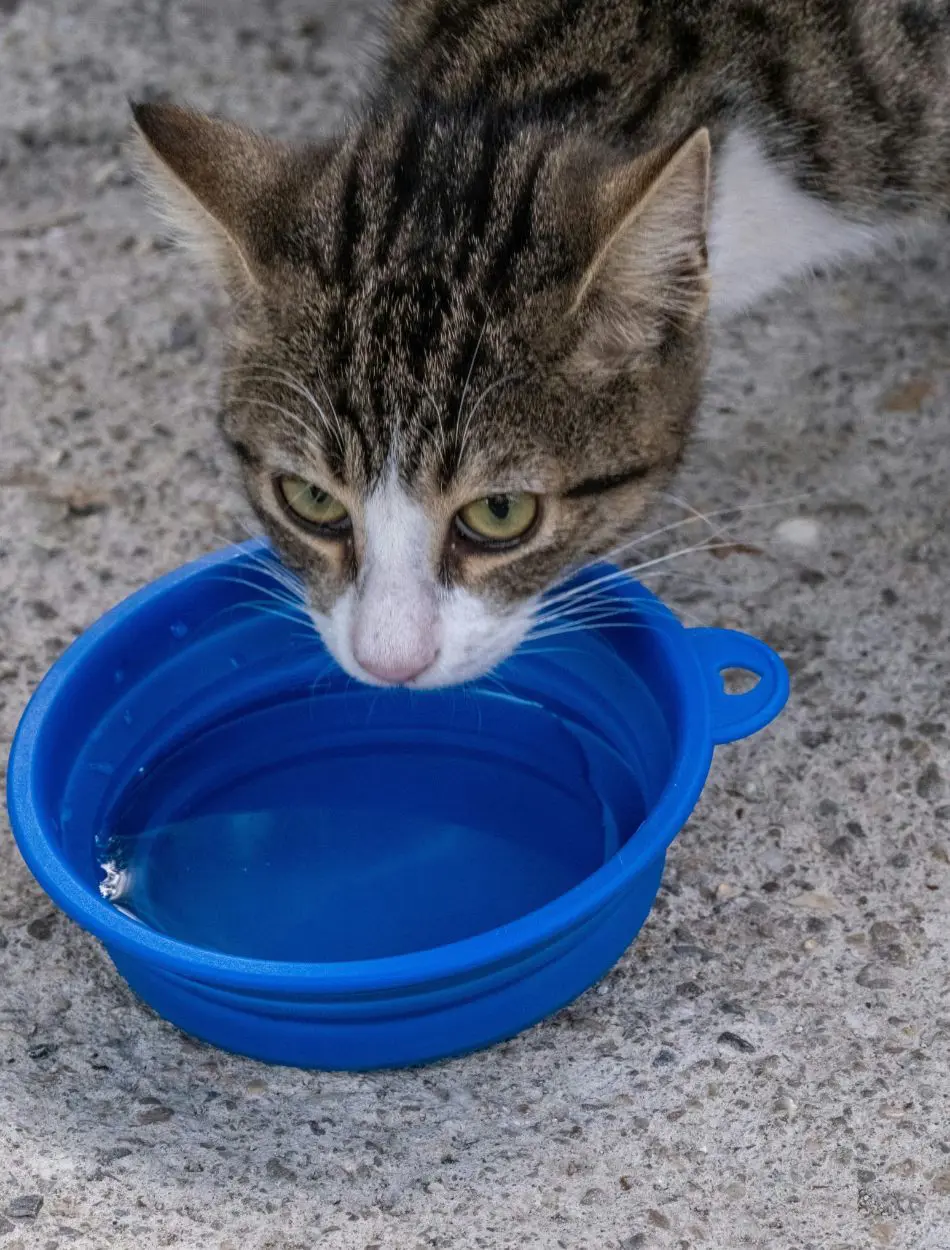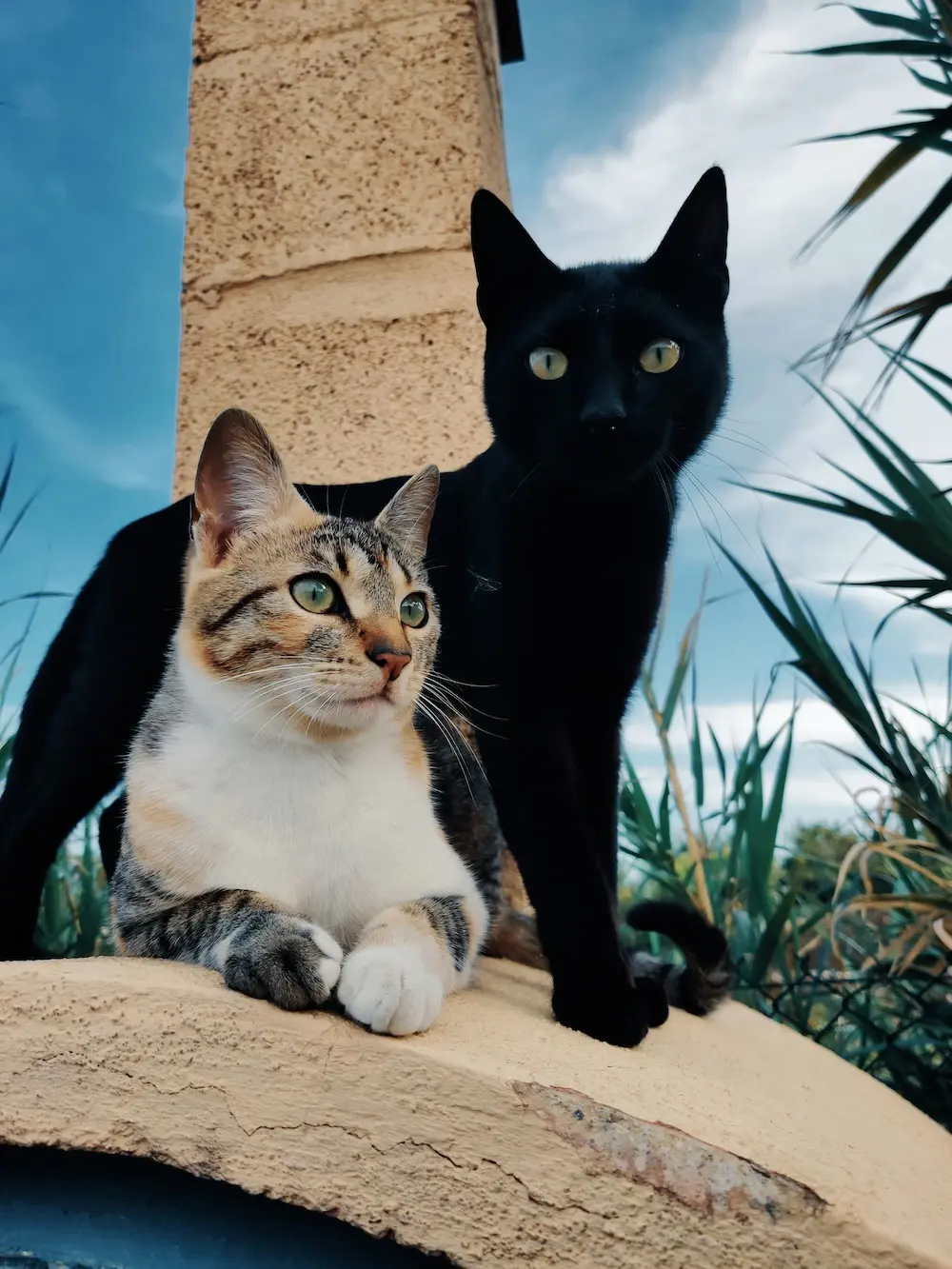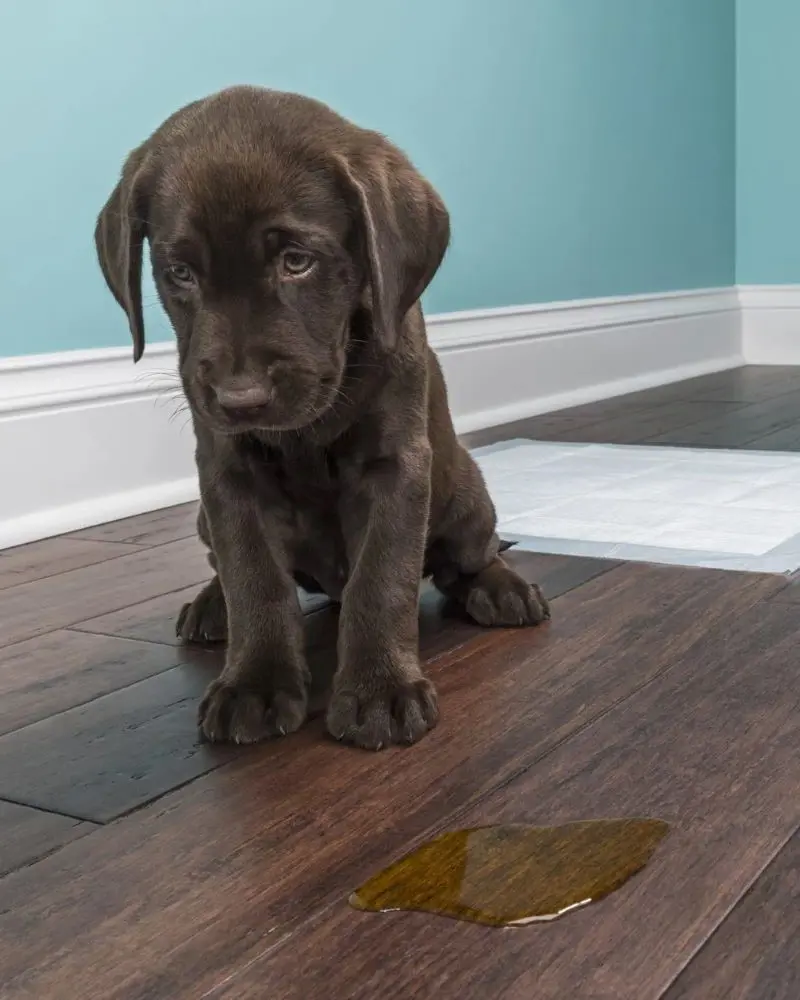Why Is My Cat Nose Wet?
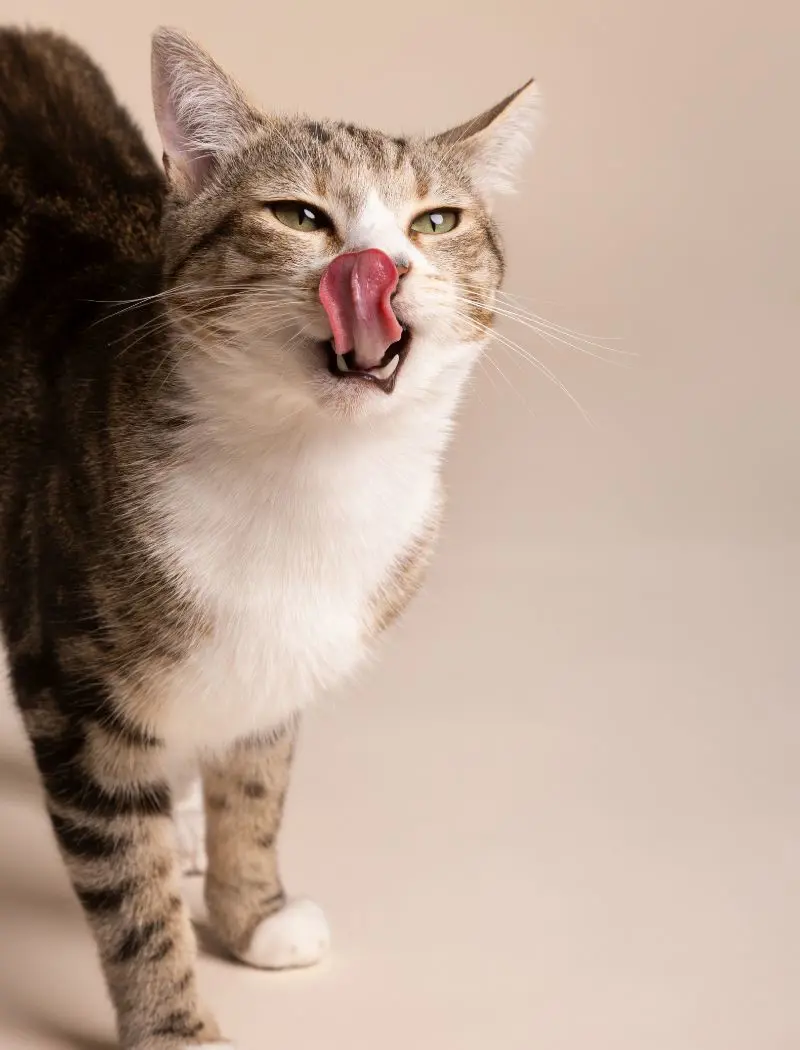
If you have a pet cat, you might have noticed their wet nose and wondered why my cat's nose is wet. Does a cat's wet nose signify something or is it very normal? these questions might have popped up in your head at least once.
It is normal for a cat to have a wet nose. It is caused mostly due to physical and environmental factors, however, the moisture level can be different throughout the day. This article provides you with in-depth details regarding why your cat has a wet nose and when you should worry about it.
Environment
One of the reasons that affects your cat's nose is the temperature and humidity surrounding your cat. If your cat is in warmer weather, it can cause humidity leading to their snouts being wetter than usual. This happens as they are breathing in the water particles that are present in the air.
On the contrary, if your cat is in cold, dry, or artificial air that comes from air conditioners, they may end up having a dry and cracked nose. The main reason behind this is because the cold air tends to draw moisture from the cat's nose.
Drinking
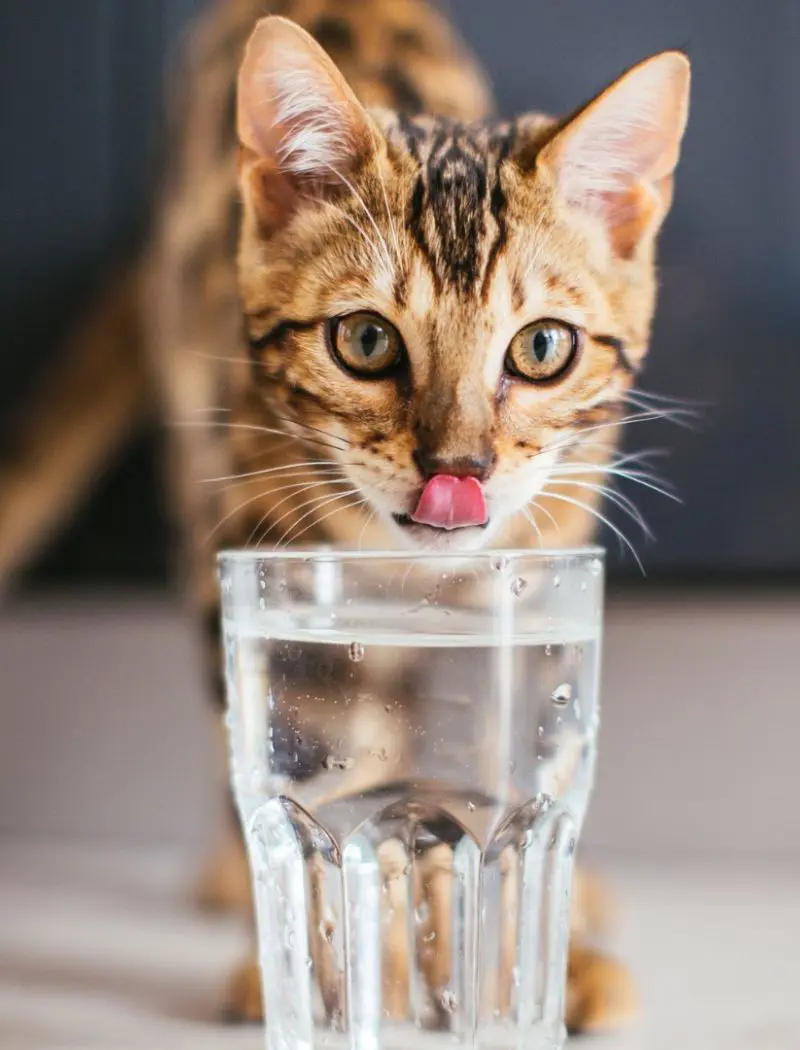
It is normal for cats to wet their nose when drinking or eating as they dip their heads in the bowl while drinking water. Unlike humans, they do not dip their whole tongue into the bowl. Instead, they drink water by flicking their tongues at high speed.
When drinking water at high speed, the water splash can wet their nose and they may even lick their nose. If they wet their nose from drinking, it is typically short-lived and will dry out faster. Cats may also try to lick their snout to get rid of the water which will keep the moister a bit longer.
Licking
If you have a pet cat, you are already aware of their frequently licking behavior which is also one of the reasons why a cat's nose is wet. They are more likely to lick their nose as part of grooming which helps to remove dirt and food particles that may have been collected.
Along with cleanliness, licking their nose also helps cats to increase their sense of smell. If they have a wet nose, they are more capable of catching scent particles present in their surroundings.
In addition, cats also lick their mouth and nose after yawning or having a meal, which leaves their nose with wet saliva. Therefore, licking their nose is a healthy and natural behavior that may lead to a wet nose.
Tears
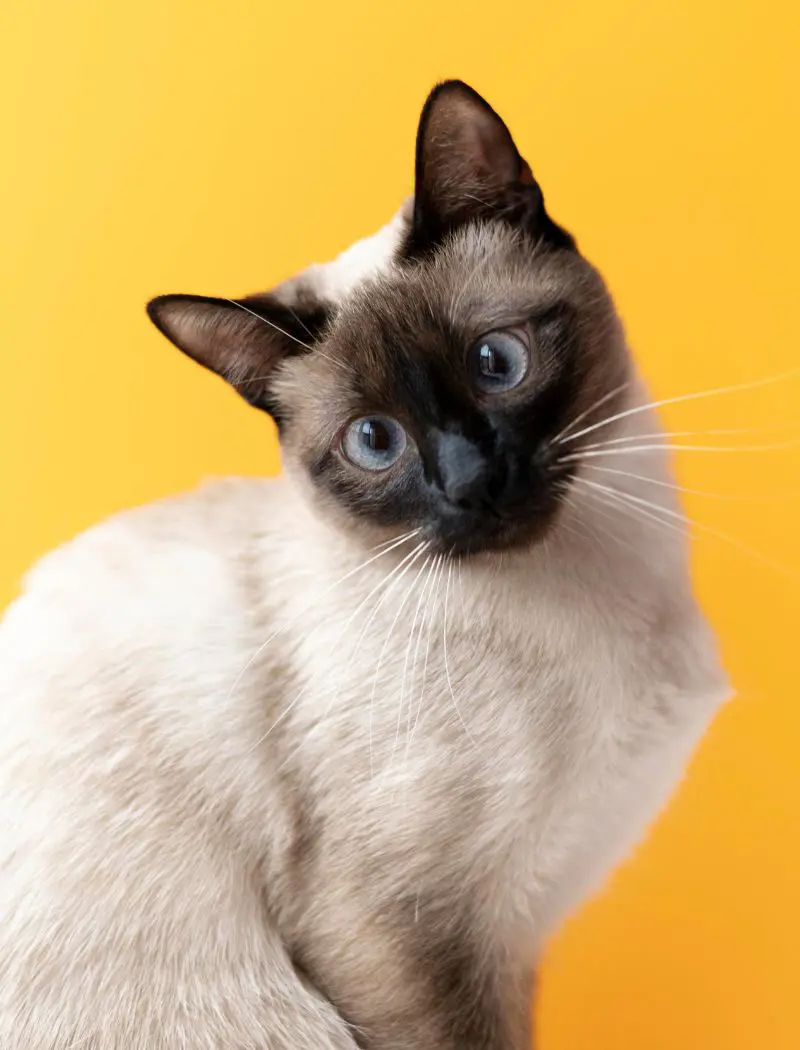
Producing tears is a natural and regular eye function that helps to keep the eyes clean, moist, and protected from irritants. When a cat produces tears, it is drained into small ducts which causes nasal cavities. Due to this reason, the nose of a cat can become wet when the tear is produced.
Tear production and drainage in a healthy cat are natural and subtle. But if your cat produces an excess amount of tears, causing the nose to appear wetter than normal time, it might be a sign of other health issues such as allergies or infections.
Mucus
The nasal passage of a cat contains a thin layer of mucus that plays a very important role. Moisture of the mucus is responsible for helping the cat's nose to trap scent particles.
It helps cats navigate their environment along with boosting their appetite by helping them identify food. It is a major factor that supports the sense of smell in a cat as the scent molecules are more likely to stick on wet surfaces.
In addition, it also helps the cats by keeping their airways moist and free from waste or irritants. If harmful viruses or bacteria try to enter the nose, the presence of mucus can help to trap them and prevent infection. However, if their nose becomes very wet, it may be a sign of health issues.
Temperature Regulation
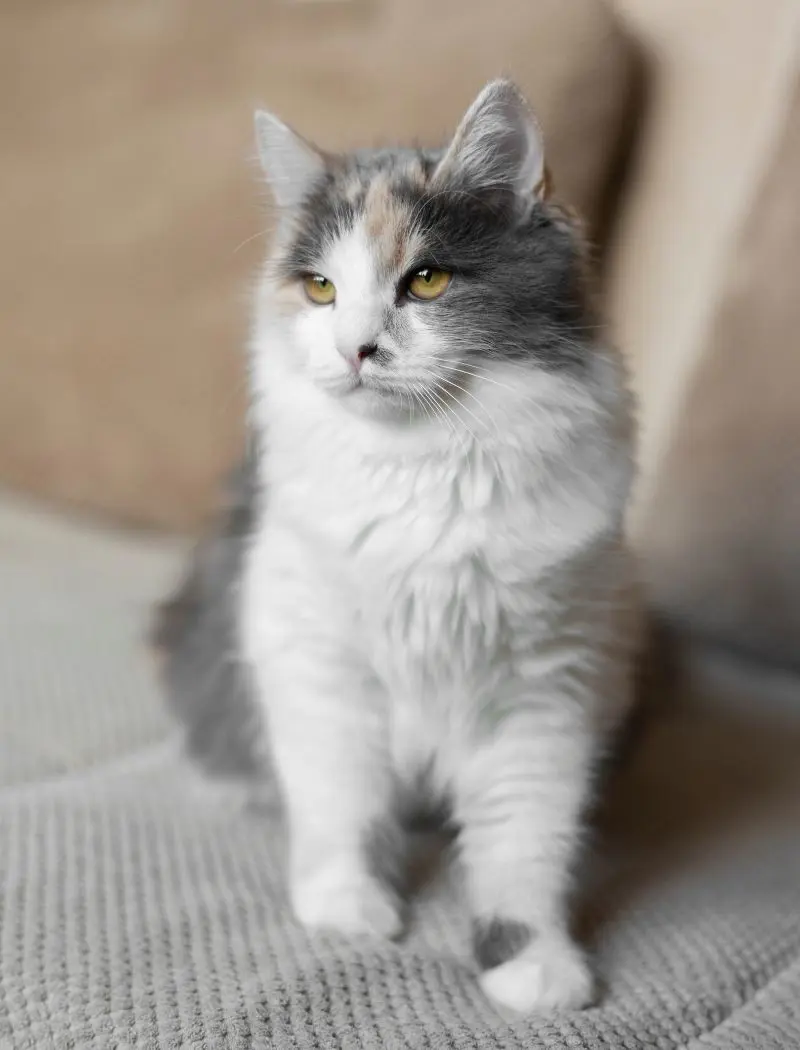
To regulate the body temperature of a cat, their wet nose plays a vital role by maintaining the thermal balance. Cats tend to sweat through their paw pads, panting, and sometimes moisture on their nose.
When a cat has a wet nose, it tries to cool the temperature down through a process called evaporative cooling. It is a small but effective way for cats to regulate their temperature and cool their body down.
A wet nose also helps cats by releasing extra body heat into the surrounding area when they are engaged in physical activities or are open in warm temperatures. Therefore, it is a very common and natural reason why cats have wet noses.
Intensifies the Sense of Smell
Cats rely on their sense of smell for several aspects of their daily life. It helps them to identify the food, recognize their territories, familiarize themselves with other animals, and many more. To perform these activities properly, a wet nose plays a vital role in enhancing their sense of smell.
If your cat has a wet nose, they are more capable of trapping scent particles. This is because scent particles can stick more easily on a wet nose. This helps cats with tasks such as hunting, searching for food, and analyzing the environment.
A moist nose is also responsible for helping cats communicate with other animals. It assists them to smell the markings of other cats and understand their territorial boundaries, mood, and other behaviors.
Excitement
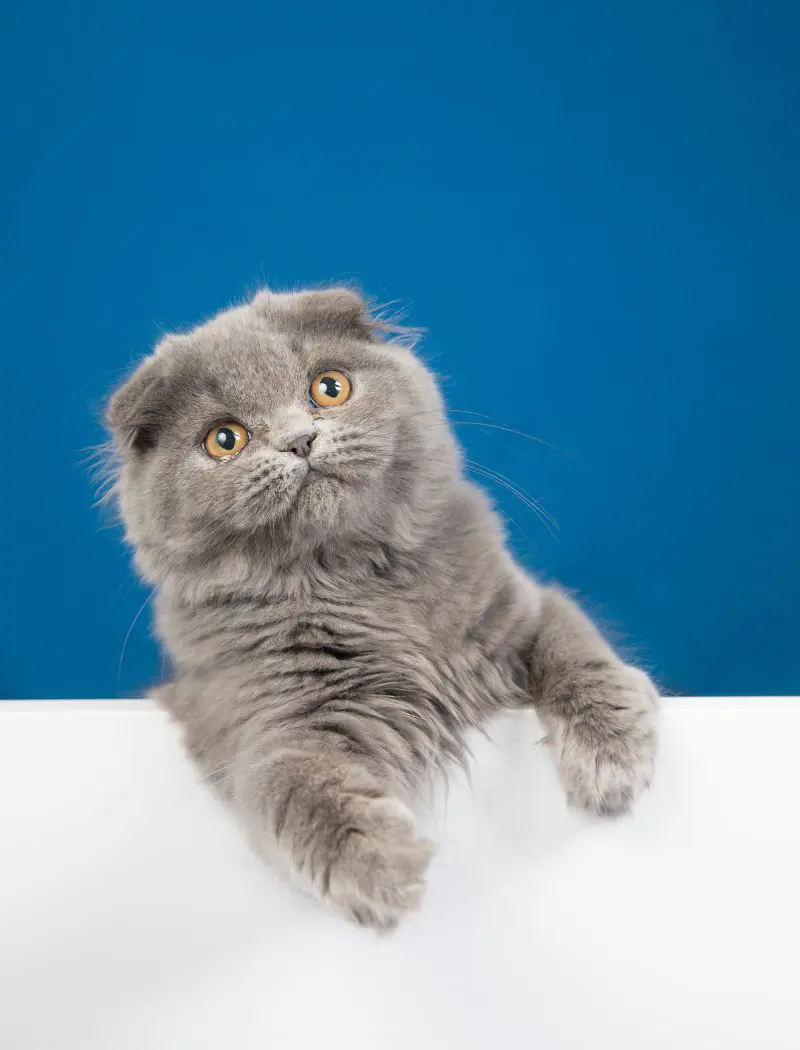
Cats tend to be excited due to various reasons such as playtime, anticipation of food, or any new experiences. Due to this reason, they are likely to have a moist nose. This happens due to intense activity in their respiratory system, heavy breathing, and even emotional response.
When cats breathe rapidly through their nose, the moisture is collected in the nasal passage, making the nose moist. The mucous membrane of an excited cat can make the nose wet when triggered by the cat's nervous system.
Their excitement can also cause physiological responses like moistening of the nose due to the activation of their sympathetic nervous system. Thus, excitement can lead to the wet nose of a cat which is temporary and harmless.
Stress or Anxiety
Stress or anxiety is another factor that causes the cat's nose to get wet. Their stress response is similar to the effects seen during excitement such as mucus production and fast respiration.
When a cat is stressed, it causes an increase in their respiratory rate forming condensation on their nose. Due to this, their noses are wetter than at other times. The mucous membrane of a stressed cat is more likely to produce more mucus than a normal cat causing the nose to become wet.
In addition, the extra mucus plays a vital role in protecting the respiratory system when your cat is stressed. A stressed cat may also show behaviors such as licking or grooming. They may lick their nose frequently to soothe themselves or clear their nose which makes the nose wet.
Sniffing

Sniffing is an essential way for cats to explore their surroundings, gather information, and react to the scents. This causes increased activity in their nasal passage, making their nose wet.
When your cat is sniffing, the air is drained into their nasal passage causing the moisture to become more visible. This can lead to their nose appearing wetter. Moreover, sniffing also prompts the nasal gland to produce more mucus making the nose look moist.
Cats are known to sniff their surroundings to explore scents and gather information. This can result in the collection of moisture on their nose as there is increased airflow and mucus production on their nose.
Seasonal Change
Seasonal change is also one of the reasons for your cat's wet nose. Changes in the environment can also produce new allergens or irritants in the surroundings, affecting a cat's nasal passage.
During colder months, cats can have wet noses because of colds or infections. They may also suffer from runny or wet noses as the body tries to make up for the dryness. Moreover, moisture present in the air can also cause bacterial or fungal infections leading to the moist nose of a cat.
In summer, fleas and other parasites are found to be more active than usual. Although less common, these parasites can sometimes cause skin and respiratory issues resulting in a wet nose. These are some of the temporary causes of a cat's wet nose, but it is important to monitor your cat's health and surroundings to make sure they are healthy.
When to Seek Veterinary Care
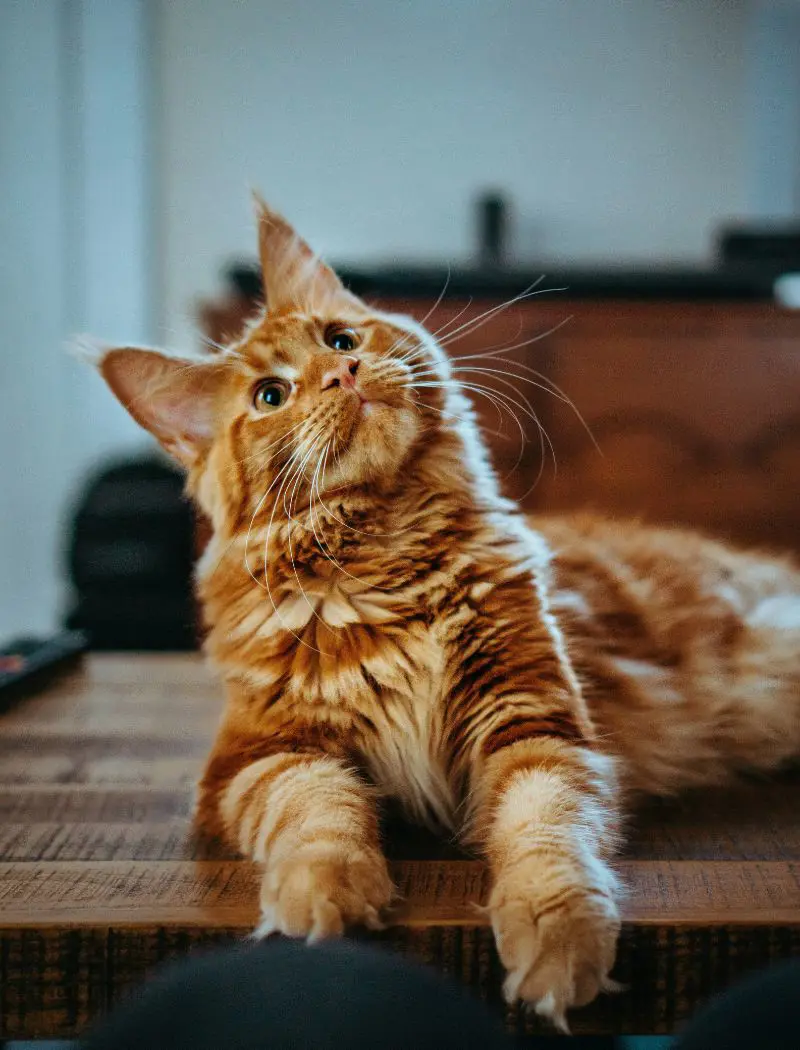
Persistent Wetness
If your cat's nose is wet for a long time, it can indicate signs of health issues. It may be a sign of respiratory infections that may cause nasal discharge and wetness. It can also cause sneezing, coughing, and eye discharge in cats.
Another cause of persistent wetness in cats is allergies that may be caused by prolonged exposure to cleaning products, strong smells, and smoke. This can cause chronic nasal discharge and wetness.
If your cat has inflammation in the sinus, it can also cause continuous nasal discharge. This is mostly caused due to infection and allergies. If your cat shows any of these signs of persistent wetness, it is important to take them to a vet to improve their health condition.
Followed by Other Symptoms
It is normal for your cat’s nose to be wet, however, if it is followed by other symptoms, it may be due to various health issues. For instance, if your cat's discharge is thick, green, or yellow, it can be due to bacterial infection. In addition, if the amount of discharge is high, it can also be a sign of various infections.
If your cat coughs or wheezes, it may be a sign of respiratory issues. While coughing and wheezing are sometimes natural, it is important to seek professional help in case it is persistent. A wet nose accompanied by behavioral changes like lethargy or low activity level can also indicate illness or discomfort.
Some of the other symptoms that you should look out for when your cat has a wet nose are loss of appetite, watery or sticky eyes, ear discharge, and fever.
Unusual Smell
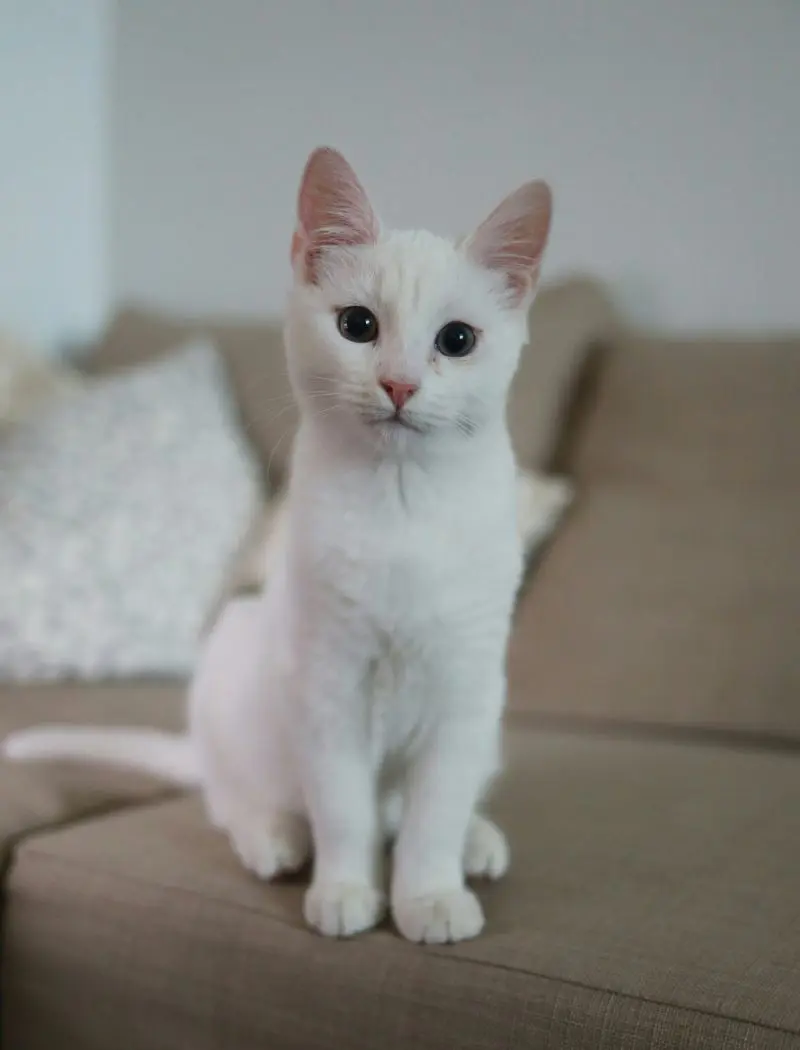
If your cat’s nose has a sharp foul smell, it is important to look out for the reasons and seek professional help. One of the reasons for the foul smell of cats' noses is bacterial infections. It can cause their nasal discharge to be foul-smelling. Moreover, fungal infections are also a cause of these unusual smells.
A cat suffering from advanced dental issues is also likely to have a strong, displeasing smell due to bacteria and decaying food particles. This can also lead to oral puss and infections causing unpleasant breathing smells and nasal discharge.
Exposure to toxic chemicals or odors may also cause your cat’s nose to smell unusual. Fungal infections can cause moldy smells followed by nasal discharge and discomfort. Make sure to seek your vet's help if your cat is affected by any of the reasons mentioned above.
Respiratory Health
When a cat is affected by this infection, they may sneeze, cough, and have runny eyes. One of the prominent symptoms of this infection is nasal discharge which makes the nose of a cat extremely wet. It can also fill the nose with thick, discolored mucus.
Therefore, due to excessive mucus secretions, respiratory infections can cause wet noses in cats. Even though a wet nose is a sign of good health in cats, it is important to take them to the vet if they show other symptoms such as lethargy, fever, or loss of appetite.
Allergy
During an allergic reaction, the body's immune system fights allergens, causing inflammation and the production of extra nasal secretions. This makes the nose of a cat appear wetter. In addition, they may also lick their nose to clear the mucus making the nose moist.
This can cause other symptoms such as sneezing, watery eyes, runny nose, itchy skin, coughing, or wheezing. If your cat has a wet nose due to the reasons mentioned above, it is best to take them to the vet to make them feel better.
Recent posts
Cats
Cat Tail Language And Its Meaning
Cats with their fiercely independent yet charming personalities, tend to leave us in suspense regarding what may truly be on their minds. While the eyes, ears, and much of body language often give some hint, the tail is one of the clearest indicators...
How Cat Love Bites Happen And Its Respond
You may wonder about the various activities of your cats, among which you may wonder about their biting you, mainly while you are petting them. You may wonder how bites happen and how to deal with them. As the term suggests, it is known as kibble and...
18 Reasons Why Your Cat Nose Is Dry
The nose is a very vital part of a cat's health and provides information about whether or not a cat is well or ill. Many pet owners believe that if a cat possesses a dry nose, then it must be ill. But that is not the case, it may include the environm...
Why Is My Cat Not Drinking Water
Cats are notoriously finicky when it comes to water consumption, and it's natural to worry if your canine companion isn't drinking as much as you expect. From environmental preference to a simple behavioral quirk, many factors can contribute to the c...
18 Reasons Why Your Cat Is Snoring
While it may seem cute or amusing, snoring in cats can also be an indication of several underlying health problems that pet owners need to know about. Some light snoring is typical for certain cats, however steady or noisy wheezing could demonstrate ...
15 Hypoallergenic Cat Breeds
People are often more allergic to cats than to dogs. Unlike dogs, cat allergies are caused by the proteins found in their saliva, skin, and dander rather than fur. All cats inherently produce allergens, so no cat is truly hypoallergenic. However, som...

